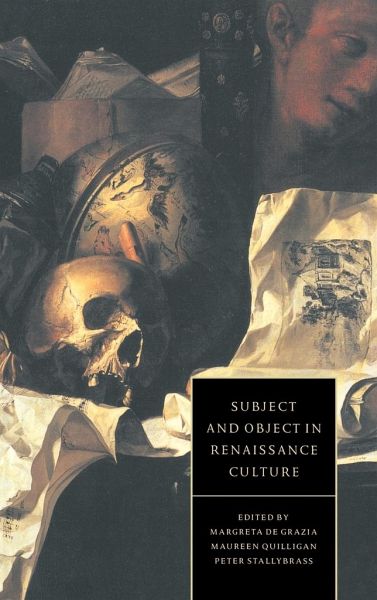
Subject and Object in Renaissance Culture

PAYBACK Punkte
62 °P sammeln!
These essays by leading scholars offer a new focus on the Renaissance via objects rather than subjects.


Rechnungen
Bestellstatus
Retourenschein
Storno